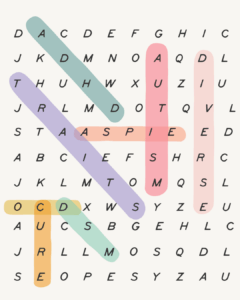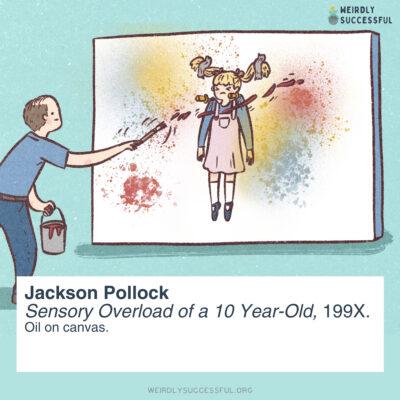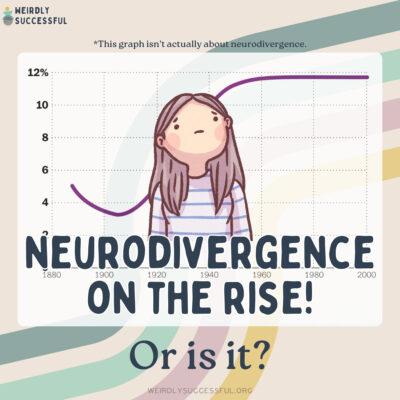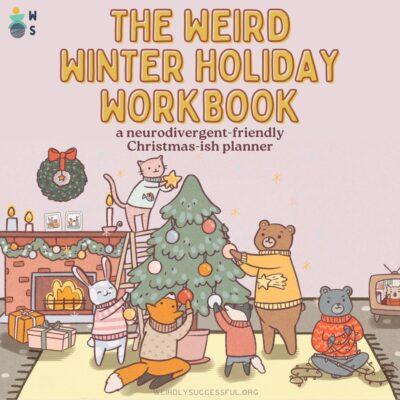Table of Contents[Hide][Show]
Talking about neurodivergence is not as clear-cut as it seems. The history of the treatment and acceptance of neurodivergent conditions is long and not without stigma and harm.
This means that many words used throughout the decades have harmful connotations or dehumanising ideas behind them. Since language cannot be changed overnight, these expressions are still used by some people to this day when they talk about neurodivergence. And while some people use these words with the intent to hurt, many use them without malevolence, simply because it is what they know.
What are the expressions preferred by the neurodivergent community?
Neurodivergent conditions include ADHD, Autism, OCD, Sensory Processing Disorder and specific learning difficulties, like dyslexia, dyscalculia and dysgraphia.
Like in other marginalized communities, opting out of using some words or preferring one descriptor over another is also present in the neurodivergent community. Although it would be very convenient to lump everyone together, neurodivergents are a very diverse group, and thus there is no absolute consensus on our preferred expressions. We can only assume that ableist slurs and dehumanising language won’t sit well with most of us.
However, even words that don’t seem cruel can have nuanced meanings and subtext and not everyone resonates with them.
Many neurodivergent people will prefer “traits” over “symptoms”, and refuse ableist language like “cure” or “overcome” when talking about their neurovariety.
Talking in extremes about the neurodivergent experience (gift, superpower vs curse and the worst news you’ll ever hear) erases the nuance of the very real joys and struggles people have.
For some people, “condition” is preferred over “disorder” to make it less pathologized and more neutral. However, the discussion is more nuanced than “it is always a condition and never a disorder”. No single person speaks for the entire community when it comes to terminology.
Calling some aspects of neurodivergent conditions disabilities or disorders gives acknowledgement to the hard parts, and some people specifically want to use words that accurately and honestly describe their experiences – after all, there is no gift or superpower in sleep problems, burnout, fatigue or executive dysfunction that affects most parts of someone’s life.
Calling these aspects of neurodivergence what they are makes it easier to receive the support and care needed to tackle them.
Neurodivergence is not a singular experience
While some people find strength in neutral terms when talking about their neurodivergence, others prefer to describe their experience in a more direct way that they feel paints a more accurate picture of their adversities.
At the end of the day, every person has the right to use whatever words and labels they are most comfortable with to talk about their experiences and lives, and tone policing them on their language ignores their point of view.
Some people like to separate their condition from their person, while others feel they don’t have autism or live with autism, but they are autistic, and it’s important for them to express that it’s a part of them. Thus, there’s a fascinating discussion around person-first (individual with autism) or identity-first (autistic individual) language going on. And that’s just one specific example of some of the essential discussions around neurodivergence.
It’s a good general rule to listen first: How do people talk about themselves and their experience? If you’re unsure, you can always ask what they prefer to use and respect their choice.

Why do some people use different words to talk about their neurodivergence?
The word neurodiversity is used to describe a diverse group of individuals with different neurotypes. It includes all humans, though colloquially it is often used for a group of neurodivergent people.
Words can mean different things to different individuals. People diagnosed in earlier decades still might be more comfortable describing themselves with terms that haven’t been officially in use for years, like ADD for ADHD, or Asperger’s for Autism, because that’s what they’re used to.
People have the right to describe their experience with whatever word they please. Members of our community are reclaiming words and creating new expressions to better define their realities every day – the wonderful expression neurospicy (for neurodivergent) is one of these. Language will evolve and with more awareness, we’ll probably see new words emerging that describe our lived experience in a more accurate or kinder way.
In the meanwhile, gatekeeping the community from our own peers does not help either the movement nor our lives.
Is it bad if I don’t know which words to use when I’m talking about neurodivergence?
Unfortunately, discrimination, bullying, stigmatisation and marginalisation are still very much present in our society. There is still so much confusion about what ADHD, OCD, SPD or Autism are like, and many people only know stereotypes or outdated terms to ask questions, even if they themselves suspect they might be neurodivergent.
It is not uncommon for neurodivergent newcomers to be scared off from a community for simply using a phrase that, unbeknownst to them, is not preferred in that community.
But this means they will stop asking questions, and stop learning, which is not helpful for someone who might be confused or overwhelmed by new information and just wants clarity.
Also, context matters.
Any word can be used in a derogatory sense or with malicious intent. You can be very rude in a formal way, or very kind using slang and informal language. Just think of the handy British formula for calling someone a bad person. You (adjective) + (any noun, the more common the better) = you absolute kettle.
Me calling myself weird, or someone who loves me endearingly calling me their little weirdo is entirely different from being bullied while called “that weird girl”.
So while semantics and etymology are important, there is not one single, universally approved descriptor for the neurodivergent experience that is loved and preferred by the entire community.
It is futile to argue over this and use our precious energy on telling people off for words they use for themselves.

Will you bite me if I don’t know the right words?
Short version: no. 🙂
Longer version: We at Weirdly Successful will always strive to use the most inclusive, kind and accurate language to the best of our knowledge. We are open to learning & growing and we’ll see where the conversation leads us in the coming years.
However, we are well aware that a big part of our audience is new to this journey, and we are prepared to see some language in the comments that may not be as neuroaffirming or neutral as our own. We want to create a helpful, kind community, and we believe it’s more important to speak out imperfectly than to not speak at all.
How to comment on this website
- You are free to use whatever words to describe your own experience.
- Respect the words people use to describe their experience.
- If you are new to this world, use words you currently know. Be open to suggestions on new expressions, and when you know more, you can change your language if you find an expression that you resonate with more.
- And if you’ve been on the ND-journey for a long time, we ask you to please be patient with the newcomers in our community, and if you do decide to educate them on language usage, do so with kindness and empathy.
We’re all in this together and if we want to change the world, we can’t be bogged down in comment wars.
We have a lot of work to do.
Also, my sticker collection is not going to alphabetise itself. So let’s get cracking.
TL;DR
- Use words you know now and when you know better, do better.
- When explaining the history of a specific word to someone, make sure to do so with kindness.
- Be nice, and honour what expressions people prefer to use for their experience.








 ADHD Planners: Bad advice, myths, solutions and best choices
ADHD Planners: Bad advice, myths, solutions and best choices
Leave a Reply